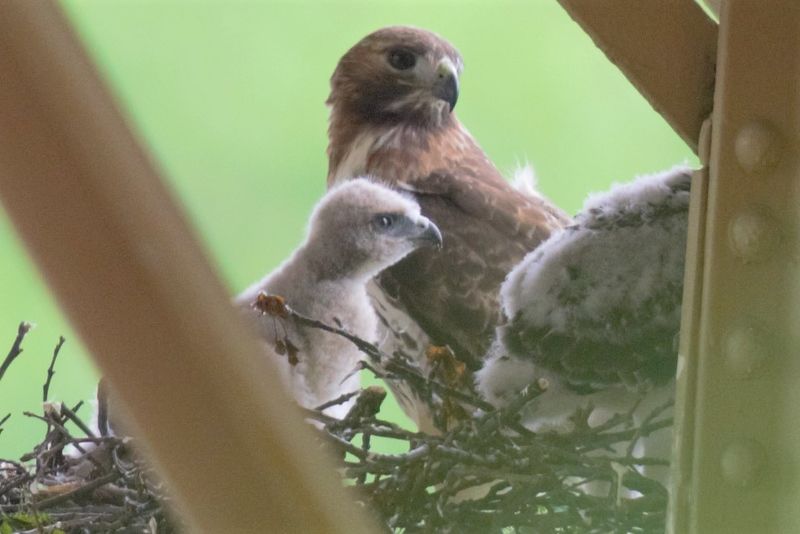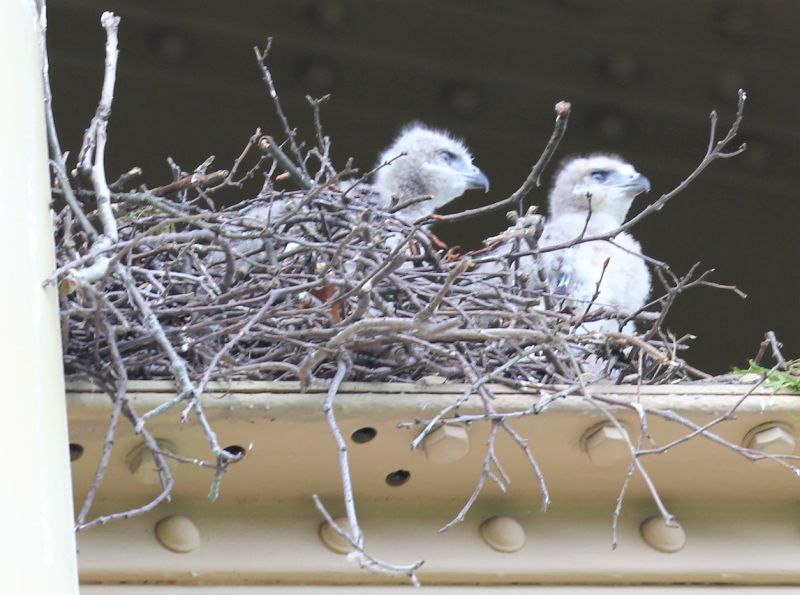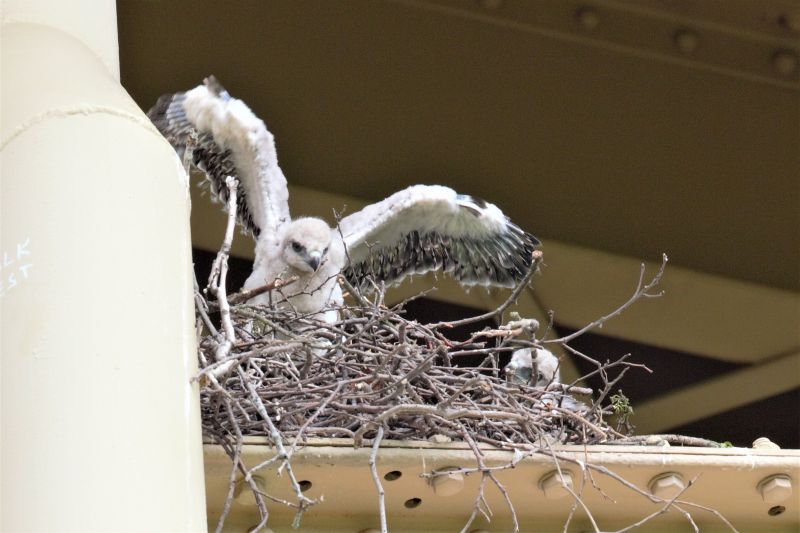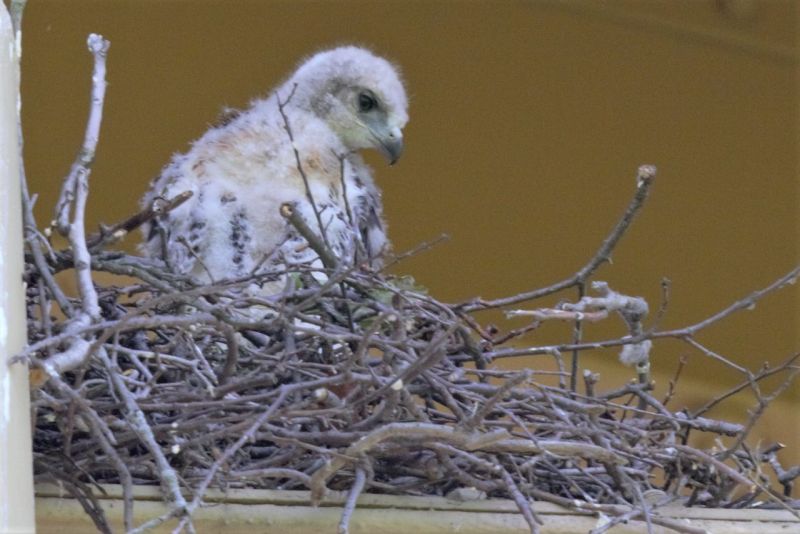
This spring (2018) I’ve seen two red-tailed hawk nests in Schenley Park and there’s probably a third. Gregory Diskin is documenting one of them with his camera.
Above, the mother hawk watches her two chicks on May 14. Below, the chicks gaze out from their bridge nest on May 17.

On May 18 a chick tests his wings.

On May 21 a chick displays his new, reddish chest feathers.

(Click on any photo to see more of Gregory Diskin’s album.)
These two will fly in the next few weeks. They’re much further along than the tree nest overlooking the Parkway where the mother is still incubating or brooding. She’s hard to see now among the leaves.
If you watch red-tailed hawks in your area you might find a nest. When you see one carrying prey in its talons, it’s taking food to the chicks. Follow the bird and you’ll find the red-tailed hawks at home.
(photos by Gregory M. Diskin)
Kate, I had a question about Hope and her young. I don’t know how to find how many she fledged, but I was just curious if you know the sexes of those fledged. Since I don’t know that answer, this question may be moot. BUT, if all those fledged were females, could she have eaten all the males as they were hatching? I don’t know if she could know the sex as they were hatching, but…it was just a thought I wanted to throw out there.
Laurie K, No she did not eat all the males.
Of Hope’s 6 chicks that were banded prior to this year (Tarentum & Pitt), 2 were male, 4 were female. This year’s 2 chicks were a borderline weight and given female bands just in case. However, it appears likely now that they are males. That means she’s had 4 males and 4 females. No she does not eat the males.
What is the location of the red tail hawk nest? I’m an avid bird photographer and would love the opportunity to get some photos of these beautiful birds